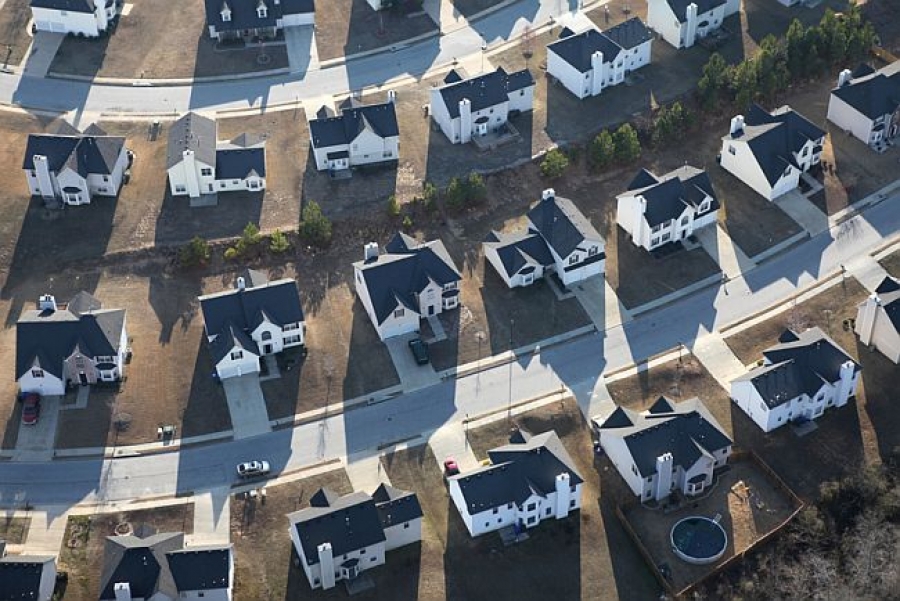Getting ready to buy your first home? You're probably caught in that age-old dilemma of whether to buy in the city or move to the suburbs. There are plenty of reports out there that detail how millennials want to stay in the city to be where all the action is. Walkability isn't just a catchword; it's a life goal. And, the reports out there that detail how being within close proximity to a Starbucks, a Trader Joe's, and a Target can raise your home value only strengthen the argument for urban living. Of course, don't discount all those reports that show that millennials are moving to ‘burbs to buy homes.
"A recent report from the National Association of REALTORS® shows that, instead of settling down in urban areas, young homebuyers are increasingly scooping up properties in the suburbs," said smartasset. Conventional wisdom may say that's primarily an affordability issue, and that factor can't be ignored. However, there are several additional reasons why the suburbs are calling out to millennial buyers. And, on the flip side, there are those who can't even conceive of leaving the city for the ‘burbs, affordability notwithstanding.
So how do you know where to go? These are some of the key factors.
Being close to what you need
In a city, you can be close to bars, shops, restaurants, and everything else that makes the area so dynamic. Of course, the density can make it hard to find parking, limit the open space, and make it unappealing for young families who want to live among other young families. Millennials who have kids or who are thinking of having kids in the near future have to weigh the importance of being in what they consider an exciting location against the practicality of being in a more family-friendly area.
Schools
The schools may be better in the suburbs. "It should come as no surprise that urban districts tend to have lower graduation rates than suburban ones," said The Hechinger Report. The reason: "They often have more disadvantaged students and fewer resources."
While individual cities and districts continue to tackle this important issue, families move to the suburbs, where they'll likely pay higher taxes on their home to accommodate newer schools and expanded resources. Stay in the city, and you may have to pony up for private schools or seek out a charter to get a comparable education for your present (or future) kids.
Living Space
"The closer you get to a city center, the smaller the living spaces tend to be, even in Texas where things are bigger," said Square Cow Movers. "This could be doable for some single professionals or couples, but for families it can be an issue. The suburbs provide more space to spread out, which is part of the reason they are still so popular today."

elpadvisors.com
Jobs
"One thing to consider before heading to the suburbs is where you'll work," said smartasset. Do you currently work in the city? How long will your commute be, and are you sure you can live with it?
It's also important to think in terms of a big, unpleasant, "What if?" What if your job situation changes? What will the prospects be like in the area you are considering? Asking yourself how much time you are willing to spend in the car every day and taking a good look at how that translates to options in the area can help you key in on some areas and nix others.
Outdoor space
In some urban areas, parks give residents a respite from all the high rises and commercial spaces. However, living in the city often means having to make tradeoffs, and ample access to nature is one of them.
Safety
While crime rates and data vary depending on the specific location, overall, the suburbs have a reputation for being safer. Obviously if this is an issue for you, you'll do your due diligence to ensure the safety of your family. It's important to keep in mind, though, that transitional neighborhoods can provide a great value for money-conscious homebuyers - as long as you're willing to put up with some potentially unpleasant realities while the transition is under way.
This guide from Forbes can help you identify a neighborhood that's about to take a turn for the better and might be a good buy. Or, you can heed these tips from Property Brothers' Drew and Jonathan Scott. "This is when it's really important to work with a real estate agent that knows the area. Proximity to downtown, transit, shopping, amenities, and schools are really important," they said on POPSUGAR. "You can also go to the city planning department and find out any major developments that are going into the different communities. Also, drive through the neighborhoods that you are considering and look to see if there are a lot of recent sales. Trying to invest in emerging communities can be risky, so if you are new to real estate, then we suggest sticking to areas you are comfortable in."
Age of properties
If you want something newer, it may be harder to find in the city. Infill projects tend to be rarer, depending on the location, largely because of their cost. "Real estate is generally more expensive in infill locations than in outlying areas because land is relatively scarce, sites are closer to services and infrastructure, and zoning and the market often support uses that have higher revenue potential," said the EPA. "However, the assembly process itself involves additional costs." And then, of course, the higher cost has to be passed on to the buyer, which ties right back in to that affordability issue.






